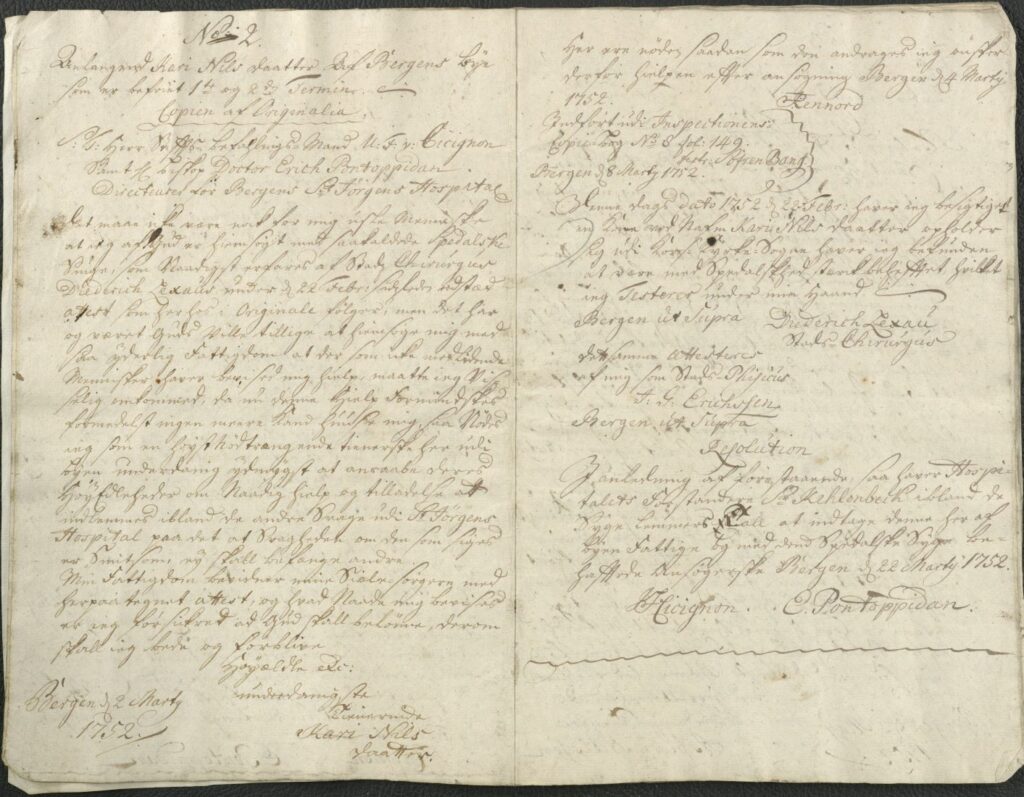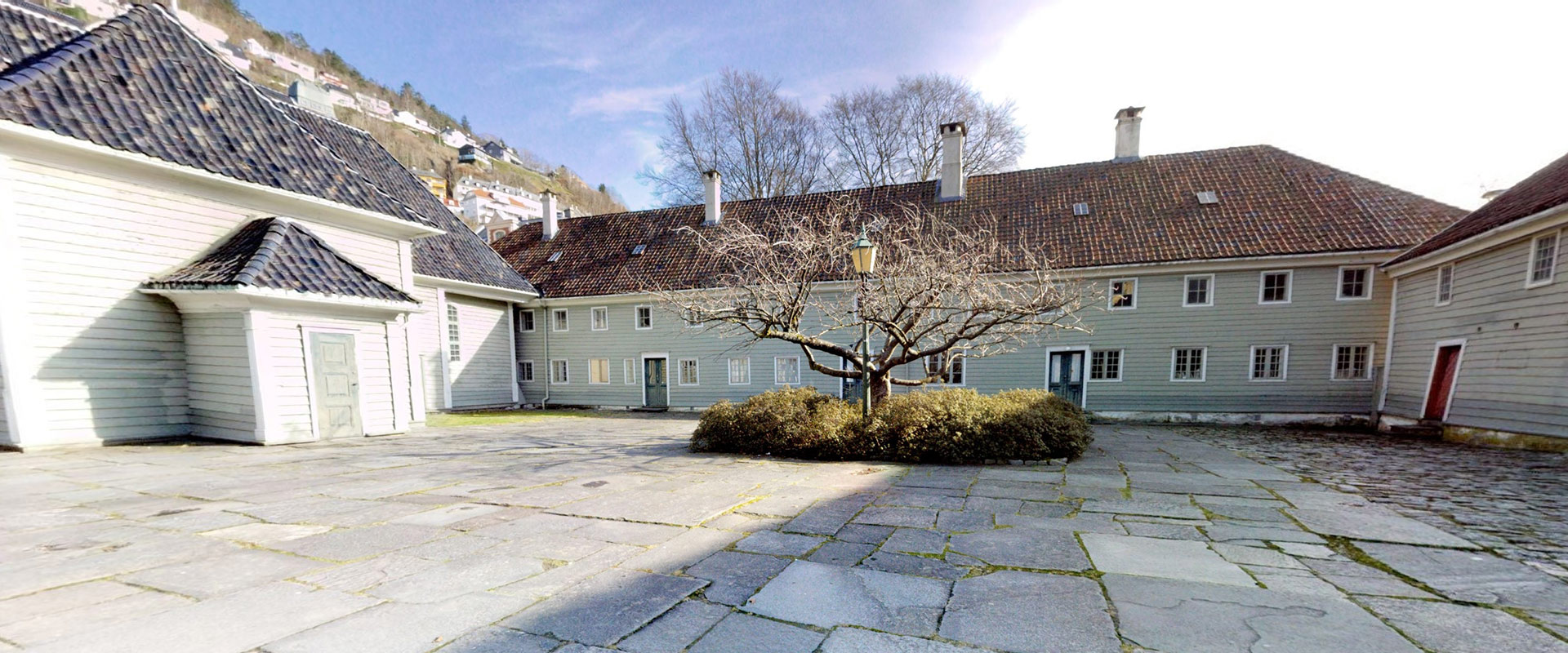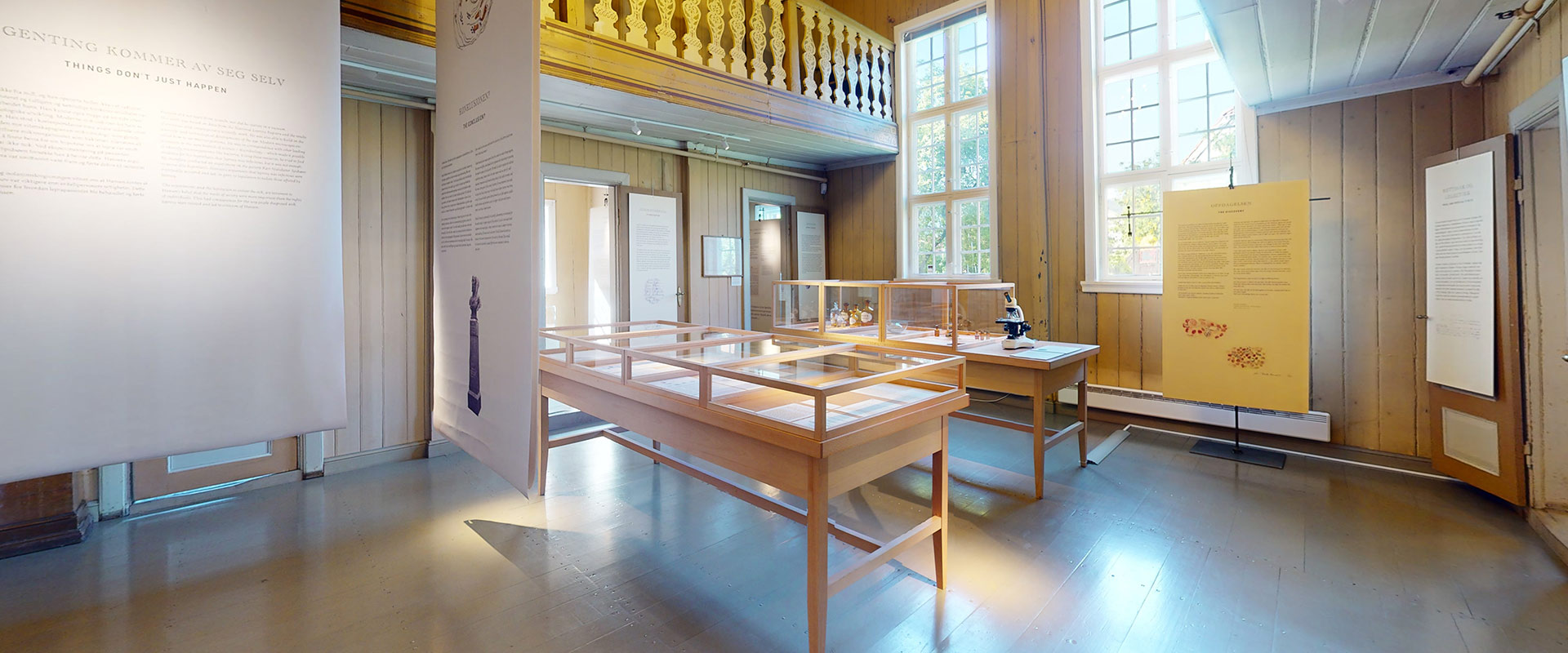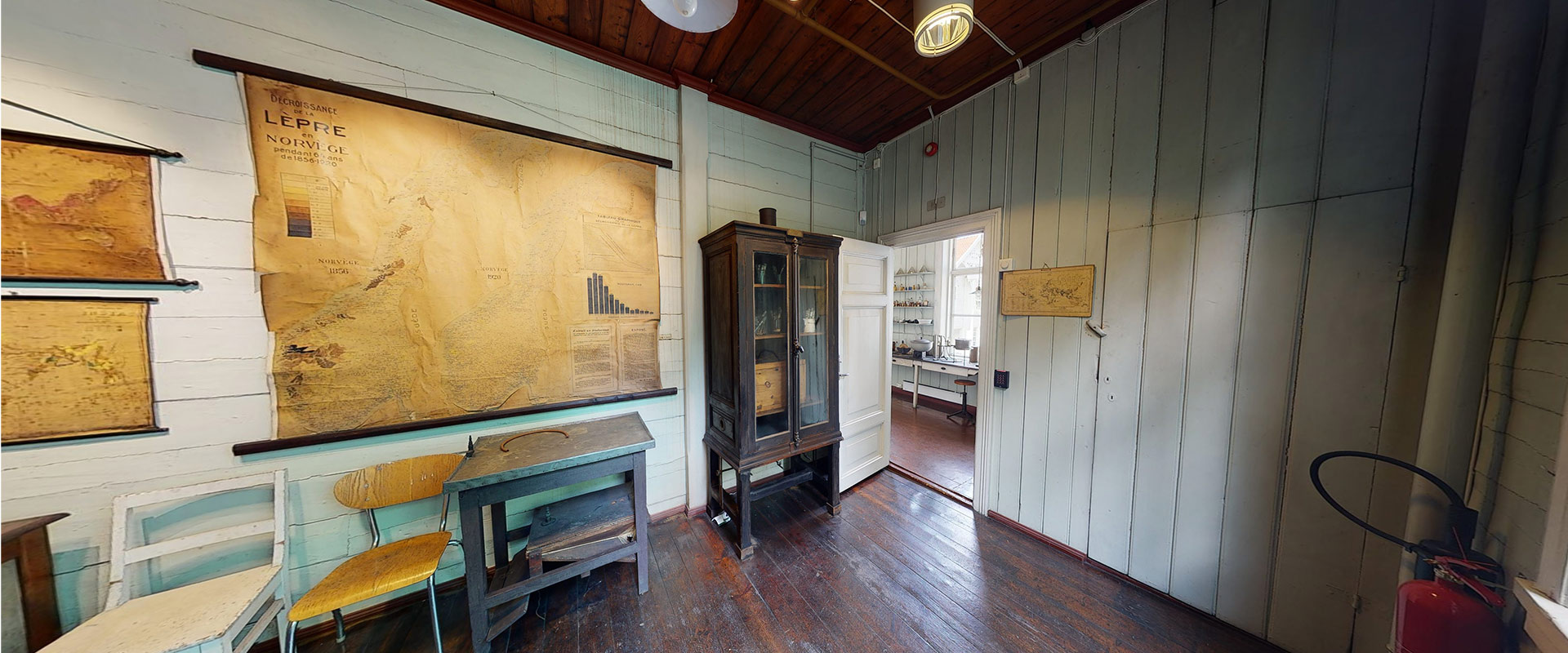Kari Nilsdatter from Bergen
Kari Nilsdatter of Korskirken parish in Bergen was admitted to St. Jørgen’s Hospital in spring 1752. On 2 March, she wrote an application to the hospital directors, county governor Cicignon and bishop Pontoppidan, and a contemporary transcript is preserved in the hospital’s archives. It is possible that someone else wrote the letter on her behalf.
In her letter, she writes that it was not enough that God had visited upon her ‘what is known as leprosy’, he had also seen fit to punish her with such poverty that she would have died had it not been for the help of ‘compassionate people’. Now that she was ill, no one could accommodate her anymore, and therefore she applied to join others with the same disease at the hospital. Moreover, she wanted to stay at the hospital where she could not infect others, as the disease was said to be infectious.
She submitted a certificate from the city surgeon Diderich Lexau, who had seen her on 22 February and could confirm that she was ‘strongly afflicted by leprosy’, as also certified by city physician Eriksen. It was confirmed on 22 March that the hospital’s superintendent, mister Kehlenbech, has admitted her among the sick, and she arrived in the hospital the following day.
Kari Nilsdatter was probably already seriously ill when she arrived at St. Jørgen’s hospital, as certified by the city surgeon. There is a receipt among the accounting vouchers that tells us that she died on 3 July that year, after just over three months in the hospital.
The letter from Kari provides some insight into how difficult the life of the poor and ill could be in Bergen in the mid-18th century. She was completely dependent on other people’s help, and when no one could any longer provide her accommodation, she had neither food nor a roof over her head. In the hospital, she had a warm place to live, a bed in which to sleep, and a weekly food allowance. Although, for us, the hospital may sound like a horrible place to stay, it was probably a good alternative for most of the residents at the time.

Bergen City Archives.



